Related Research Articles
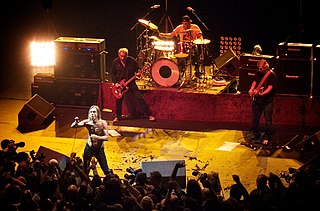
The Stooges, originally billed as the Psychedelic Stooges, and also known as Iggy and the Stooges, were an American rock band formed in Ann Arbor, Michigan, in 1967 by singer Iggy Pop, guitarist Ron Asheton, drummer Scott Asheton, and bassist Dave Alexander. Initially playing a raw, primitive style of rock and roll, the band sold few records in their original incarnation and gained a reputation for their confrontational performances, which often involved acts of self-mutilation by Iggy Pop.
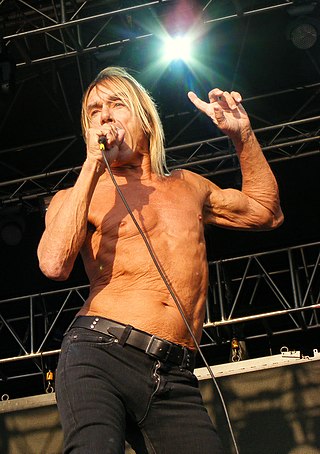
James Newell Osterberg Jr., known professionally as Iggy Pop, is an American singer, musician, songwriter, actor and radio broadcaster. He was the vocalist and lyricist of proto-punk band the Stooges, who were formed in 1967 and have disbanded and reunited many times since. Often called the "Godfather of Punk", he was named one of the 50 Great Voices by NPR. In 2010, he was inducted into the Rock and Roll Hall of Fame as a member of the Stooges. Pop also received a Grammy Lifetime Achievement Award in 2020 for his solo work.
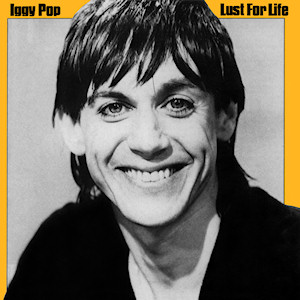
Lust for Life is the second solo studio album by the American musician Iggy Pop, released on September 9, 1977, through RCA Records. It was his second collaboration with David Bowie after The Idiot, released in March the same year. Shortly after Bowie released his own album Low in January, Pop went on a tour to support The Idiot with Bowie as his keyboardist. At the tour's conclusion, Pop and Bowie regrouped in Berlin to record the former's next solo album.

Ronald Franklin Asheton was an American musician, who was best known as the guitarist, bassist, and co-songwriter for the rock band the Stooges. He formed the Stooges along with Iggy Pop and his brother, drummer Scott Asheton, and bassist Dave Alexander. Asheton, once ranked as number 29 on Rolling Stone's list of 100 Greatest Guitarists of All Time, is currently ranked at number 60.
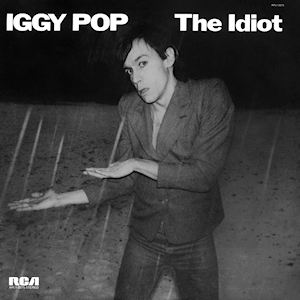
The Idiot is the debut studio album by the American musician Iggy Pop, released on March 18, 1977, through RCA Records. It was produced by David Bowie and primarily recorded at the Château d'Hérouville in Hérouville, France. The album followed the break-up of Pop's band the Stooges in 1974 and a period of drug addiction for both Pop and Bowie, after which the two moved to Europe in an effort to kick their addictions.

Kill City is a studio album by the American musicians Iggy Pop and James Williamson, both formerly of the rock band the Stooges. It was recorded as a demo in 1975 but released in altered form in November 1977 by record label Bomp!.

John Michael Erlewine is an American musician, astrologer, photographer, TV host, publisher and Internet entrepreneur who founded the music online database site AllMusic in 1991.

Brownsville Station is an American rock band from Michigan popular in the 1970s. Original members included Cub Koda (guitarist/vocalist), Mike Lutz (guitarist/vocalist), T.J. Cronley (drummer), and Tony Driggins (bassist/vocals). Later members included Henry "H-Bomb" Weck (drummer) and Bruce Nazarian (guitarist/vocalist).

Metallic K.O. is a live recording by American hard rock band The Stooges. In its original form, the album was purported to contain the last half of a performance at the Michigan Palace in Detroit, on February 9, 1974—the band's final live performance until their reformation in 2003. The performance was notable for the level of audience hostility, with the band being constantly pelted with pieces of ice, eggs, beer bottles and jelly beans, among other things, in response to Iggy Pop's audience-baiting.

Steve Mackay was an American tenor saxophonist best known for his membership in the Stooges. His performances are showcased on three songs on the band's second album, Fun House (1970).
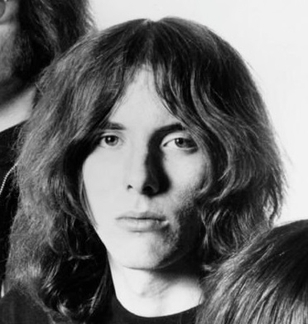
David Michael Alexander was an American musician, best known as the original bassist for influential protopunk band The Stooges. He was inducted into the Rock and Roll Hall of Fame in 2010 as a member of The Stooges.
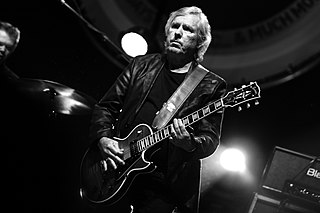
James Robert Williamson is an American guitarist, songwriter, record producer and electronics engineer. He was a member of the iconic proto-punk rock band The Stooges, notably on the influential album Raw Power and in the reformed Stooges from 2009 to 2016. Between his stints in music, Williamson worked in Silicon Valley developing computer chips. Most recently he has continued as a solo artist.

"Search and Destroy" is a song by American rock band the Stooges, recorded for the group's third album Raw Power (1973). Lead singer Iggy Pop said that the title was derived from a column heading in a Time article about the Vietnam War.
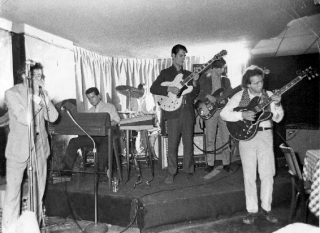
The Prime Movers were an American blues band based in Ann Arbor, Michigan, United States, which was formed in 1965. The band originally consisted of Michael Erlewine, Dan Erlewine, Robert Sheff (keyboards), Robert Vinopal (bass), and Michael "Spider" Wynn (drums). Vinopal left soon after the band's formation and was replaced by Jack Dawson. Wynn left a short time later and was replaced by James Osterberg, who would later become famous as Iggy Pop. When he joined the Prime Movers Osterberg took the name "Iggy", from his previous band The Iguanas.
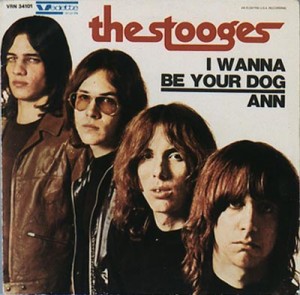
"I Wanna Be Your Dog" is a song by American rock band the Stooges, released as the group's debut single from the band's 1969 self-titled debut album. The riff is composed of only three chords, is played continuously throughout the song. The 3-minute-and-9-second-long song, with its distortion-heavy guitar intro, single-note piano riff played by producer John Cale of the Velvet Underground, and steady, driving beat, gave the cutting edge of the early heavy metal and punk sound.
Thomas "Zeke" Zettner was a member of the American rock band the Stooges. Zettner had originally been a roadie for the band, but replaced original Stooges bassist Dave Alexander after their second album Fun House until the end of 1970. Alexander's drinking problem had made him an unreliable performer. Jimmy Recca soon replaced Zettner as bass player.
The Rationals were an American rock band from Ann Arbor, Michigan.

Have Some Fun: Live at Ungano's is a live album by the rock band The Stooges. It was originally recorded on August 17, 1970 as an audience recording by Danny Fields, who had signed the band in 1968.

The Original Modern Lovers is an album of songs recorded by American rock band the Modern Lovers. The sessions were produced by Kim Fowley in 1973 and first released in 1981 by Fowley's short-lived Mohawk Records label, a subsidiary of Bomp! Records.
Paul Trynka is a British rock journalist and author. He was the editor of the music magazine Mojo from 1999 to 2003, and has also worked as editorial director of Q and editor of International Musician. In 2004, he edited publisher Dorling Kindersley's compilation of the Mojo Special Limited Edition issues on the Beatles. He has also written for The Independent and Classic Rock magazine, and contributed articles on music, fashion, design or travel for The Guardian, Elle and Blueprint, among other publications. Before turning to journalism, he worked as a professional musician with the band Nyam Nyam, recording albums for the Beggars Banquet and Factory Benelux record labels.
References
- ↑ "Stooges". Michiganrockandrolllegends.com. Retrieved November 10, 2016.
- ↑ Ambrose, Joe (2002). Gimme Danger: The Story of Iggy Pop. Omnibus Press. ISBN 9780857120311.
- 1 2 Ankeny, Jason. "The Iguanas – Biography". AllMusic . Retrieved November 11, 2016.
- ↑ Crow, Cory (October 11, 2016). "See Iggy Pop Transform Into Stooges Leader". Rollingstone.com. Retrieved November 11, 2016.
- ↑ Trynka, Paul (2007). Iggy Pop: Open Up and Bleed. Crown/Archtype. p. 89. ISBN 9780767927222.
- ↑ Paul Trynka (2007). Iggy Pop: Open Up and Bleed. Crown/Archtype. pp. 92–94. ISBN 9780767927222.
- ↑ Koda, Cuba. "The Iguanas – Review". AllMusic . Retrieved November 11, 2016.
- ↑ "ANITA BAKER - Michigan Rock and Roll Legends". Michiganrockandrolllegends.com. Retrieved August 18, 2024.